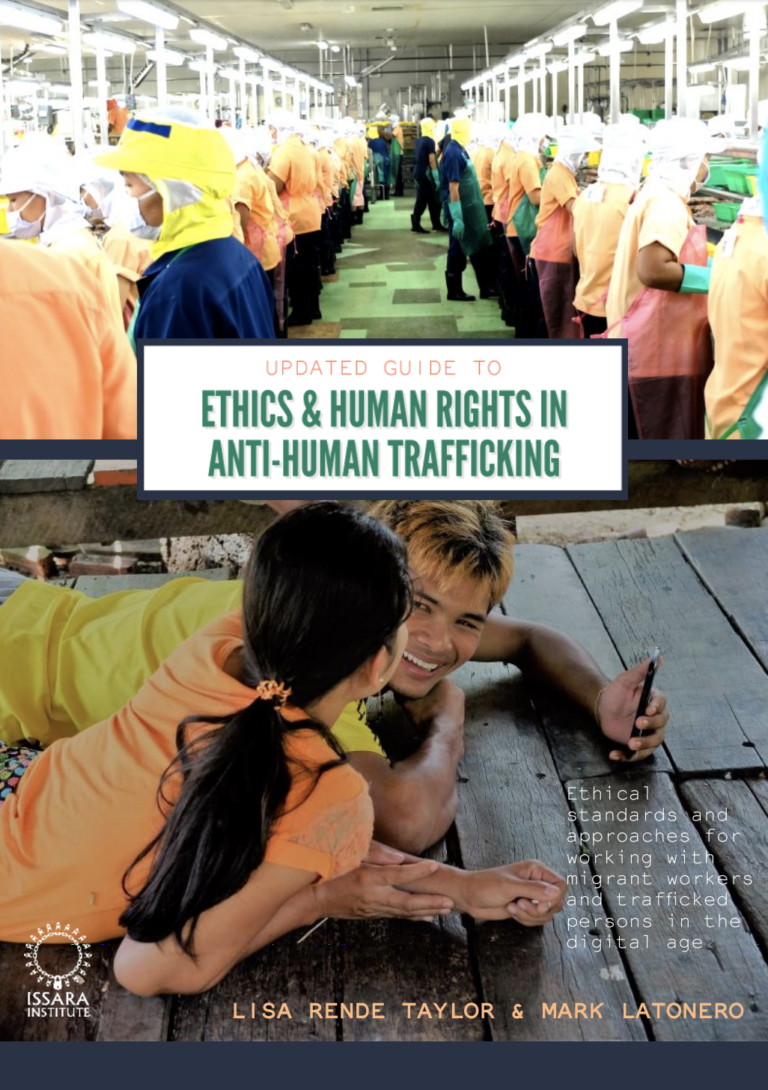Prepared by Lisa Rende Taylor and Mark Latonero.
As digital technologies such as mobile phones and social media are permeating the lives of people across the globe, more organizations working in anti-trafficking and responsible sourcing are seeking to use technology to advance their programs and missions, including to better detect adverse human rights impacts on workers in global supply chains. However, there is an urgent need to develop ethical standards for researchers and program staff handling digital information and data from the populations they serve. Using digital tools to collect data provides many opportunities to address trafficking and responsible sourcing, yet it always introduces a new set of harms, risks, and threats to vulnerable people. Without putting the appropriate safeguards in place, deploying technology can result in negative consequences. The new data ethics and security section of this guide focuses on key concepts of data responsibility, privacy, and security as critical examples for the protection of human rights in the digital age.
At the same time, in the anti-trafficking world, ethics discussions and debates have advanced since 2007 as well, spurred in part by one of the most well-known critical analyses of the anti-trafficking sector, Collateral Damage: The Impact of AntiTrafficking Measures on Human Rights Around the World. There has been, thankfully, increasing scrutiny of the negative human rights impacts of some aspects of anti-trafficking programs and research, and victim protection services. However, even in 2017, it seems that these analyses and key findings are mostly limited to research reports, and are much more difficult to find in program evaluation reports or donor criteria or standards for program funding.
Thus, once again, there is a need for an updated ethics guide that includes not only new sections and case studies on corporate
responsible sourcing and data ethics, but also advancements in more ethical practices and lessons learned in antihuman trafficking. In order to develop a practical tool that would be relevant and updated for a more diverse range of stakeholders, the Issara team convened a consultative process with an expert review group, comprised of academics and practitioners working across the antitrafficking, responsible sourcing, migrant rights, and data ethics/security fields.

